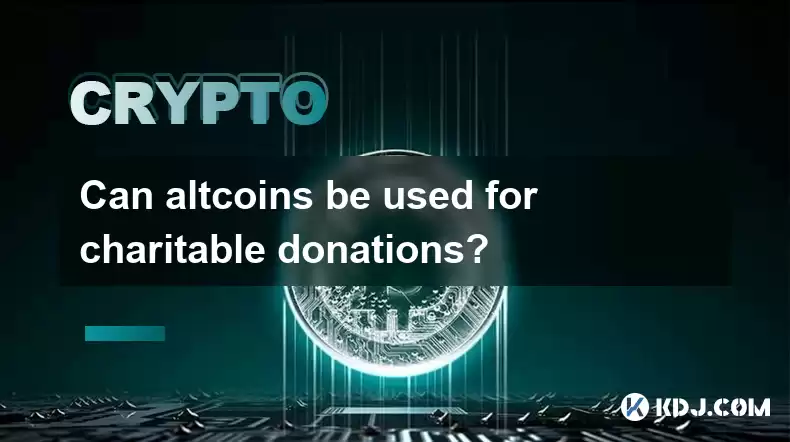-
 Bitcoin
Bitcoin $116900
0.00% -
 Ethereum
Ethereum $4280
5.48% -
 XRP
XRP $3.265
-1.45% -
 Tether USDt
Tether USDt $1.000
-0.01% -
 BNB
BNB $807.0
1.41% -
 Solana
Solana $183.1
2.93% -
 USDC
USDC $0.9999
0.00% -
 Dogecoin
Dogecoin $0.2440
6.50% -
 TRON
TRON $0.3357
-0.88% -
 Cardano
Cardano $0.8178
2.63% -
 Hyperliquid
Hyperliquid $44.13
7.45% -
 Chainlink
Chainlink $21.39
9.09% -
 Stellar
Stellar $0.4524
-0.84% -
 Sui
Sui $3.957
2.13% -
 Bitcoin Cash
Bitcoin Cash $572.7
-2.54% -
 Hedera
Hedera $0.2671
1.54% -
 Avalanche
Avalanche $24.77
4.17% -
 Ethena USDe
Ethena USDe $1.001
0.02% -
 Litecoin
Litecoin $122.3
-1.94% -
 Toncoin
Toncoin $3.432
2.26% -
 UNUS SED LEO
UNUS SED LEO $9.007
0.49% -
 Shiba Inu
Shiba Inu $0.00001396
5.26% -
 Uniswap
Uniswap $11.09
1.64% -
 Polkadot
Polkadot $4.155
4.57% -
 Dai
Dai $1.000
0.00% -
 Pepe
Pepe $0.00001253
5.11% -
 Cronos
Cronos $0.1588
2.67% -
 Bitget Token
Bitget Token $4.512
0.05% -
 Monero
Monero $275.0
0.64% -
 Ethena
Ethena $0.7527
15.10%
Can altcoins be used for charitable donations?
Donating altcoins offers potential benefits like tax deductions, convenience, and support for blockchain technology, but requires considerations such as charity research, fee checks, and tax implications.
Dec 31, 2024 at 10:51 am

Can Altcoins Be Used for Charitable Donations?
Key Points:
- Altcoins are cryptocurrencies other than Bitcoin.
- Altcoins can be used for charitable donations to support various causes.
- Several reputable charities accept altcoin donations, including crypto-native organizations and traditional organizations with crypto payment gateways.
- Donating altcoins offers potential benefits, such as tax deductions and convenience.
- Important considerations include researching charities, checking fees, and understanding tax implications.
Altcoin Donations: A Comprehensive Guide
1. Understanding Altcoins and Crypto Giving
Altcoins are cryptocurrencies that exist outside the Bitcoin ecosystem. They are built on different protocols and offer unique features, such as enhanced security, transaction speed, or specific application cases.
Charitable giving using altcoins refers to the process of donating crypto assets, other than Bitcoin, to support non-profit organizations. This form of donation has gained traction as the cryptocurrency market grows.
2. Choosing a Charity to Donate Your Altcoins
Numerous charities now accept altcoin donations. These organizations range from crypto-native charities that focus on blockchain-related causes to traditional charities that have incorporated crypto payment gateways into their fundraising efforts.
Some reputable charities that accept altcoin donations include:
- The Giving Block: A crypto-native charity platform that connects donors with non-profits accepting altcoins.
- American Red Cross: A leading humanitarian organization that accepts donations in Bitcoin, Ethereum, and other altcoins.
- UNICEF: A UN agency that provides humanitarian aid to children around the world and accepts altcoin donations.
- Doctors Without Borders: A medical charity that provides emergency aid and long-term medical care in areas affected by crises. It accepts donations in Bitcoin, Ethereum, and other cryptocurrencies.
3. Benefits of Donating Altcoins
Donating altcoins offers several potential benefits:
- Tax Deductions: In some jurisdictions, including the United States, donations of altcoins may qualify for tax deductions, provided they are made to registered charities.
- Convenience: Crypto donations can be completed quickly and easily through crypto wallets or exchange platforms.
- Support for Blockchain Technology: Donating altcoins directly to crypto-native charities contributes to the development and adoption of blockchain technology for social good.
4. Considerations for Altcoin Donations
Before donating altcoins, consider the following:
- Research Charities: Thoroughly research the charities you intend to support to ensure their legitimacy and alignment with your values.
- Check Fees: Cryptocurrency transactions often involve fees. Familiarize yourself with the fees associated with altcoin donations to select the most cost-effective option.
- Understand Tax Implications: Consult with a tax professional or refer to your local tax authorities to understand the tax consequences of altcoin donations in your jurisdiction.
5. How to Donate Altcoins
Donating altcoins is a straightforward process:
- Select a Charity: Choose a reputable charity from the various options available.
- Check Payment Options: Visit the charity's website or contact them directly to confirm which altcoins they accept.
- Send Your Donation: Use a cryptocurrency wallet or exchange platform to send the altcoins to the charity's designated address.
- Confirm Donation: Once you send the altcoins, the charity will typically send you a confirmation email. Note that processing times may vary depending on the charity and the altcoin donated.
FAQs about Altcoin Donations
Q. Are all charities accepting altcoin donations?
A. No, not all charities accept altcoin donations. Research potential charities to determine if they have implemented crypto payment options.
Q. How do I determine if a charity is legitimate?
A. Look for charities registered with reputable organizations, such as Charity Navigator or GuideStar. Review their website, financial statements, and feedback from donors.
Q. Can I donate altcoins anonymously?
A. While cryptocurrency transactions typically provide a degree of anonymity, many charities require donors to provide personal information for tax purposes and reporting.
Q. What are the tax implications of donating altcoins?
A. The tax implications of altcoin donations vary depending on jurisdiction. Consult with a tax professional to determine the tax treatment in your specific location.
Disclaimer:info@kdj.com
The information provided is not trading advice. kdj.com does not assume any responsibility for any investments made based on the information provided in this article. Cryptocurrencies are highly volatile and it is highly recommended that you invest with caution after thorough research!
If you believe that the content used on this website infringes your copyright, please contact us immediately (info@kdj.com) and we will delete it promptly.
- Navigating the Week: Other Days, Days, and Your Schedule
- 2025-08-10 16:30:16
- DALPY's Presale Success Fuels CEX Listing Speculation: What's Next?
- 2025-08-10 16:30:16
- Crypto Gains, Strategy, and Millions: Decoding the Hottest Trends
- 2025-08-10 14:30:12
- Coinbase Dives into DEX Trading: A New Era for US Crypto Users (Except You, New York!)
- 2025-08-10 14:30:12
- Kaspa (KAS) Price Prediction: August 10th's Breakout Watch
- 2025-08-10 14:50:12
- Humanity Protocol Mainnet Launch: A New Era of Crypto Integration?
- 2025-08-10 14:50:12
Related knowledge

How to purchase Aragon (ANT)?
Aug 09,2025 at 11:56pm
Understanding Aragon (ANT) and Its PurposeAragon (ANT) is a decentralized governance token that powers the Aragon Network, a platform built on the Eth...

What is the most secure way to buy Ocean Protocol (OCEAN)?
Aug 10,2025 at 01:01pm
Understanding Ocean Protocol (OCEAN) and Its EcosystemOcean Protocol (OCEAN) is a decentralized data exchange platform built on blockchain technology,...

Where can I buy UMA (UMA)?
Aug 07,2025 at 06:42pm
Understanding UMA and Its Role in Decentralized FinanceUMA (Universal Market Access) is an Ethereum-based decentralized finance (DeFi) protocol design...

How to buy Storj (STORJ) tokens?
Aug 09,2025 at 07:28am
Understanding Storj (STORJ) and Its Role in Decentralized StorageStorj is a decentralized cloud storage platform that leverages blockchain technology ...

What is the best app to buy Nano (NANO)?
Aug 09,2025 at 03:35am
Understanding Nano (NANO) and Its Unique FeaturesNano is a feeless, instant cryptocurrency designed for fast peer-to-peer transactions. Unlike many ot...

Where can I purchase Siacoin (SC)?
Aug 08,2025 at 11:14am
Understanding Siacoin (SC) and Its Role in the Sia NetworkSiacoin (SC) is the native cryptocurrency of the Sia decentralized cloud storage platform, a...

How to purchase Aragon (ANT)?
Aug 09,2025 at 11:56pm
Understanding Aragon (ANT) and Its PurposeAragon (ANT) is a decentralized governance token that powers the Aragon Network, a platform built on the Eth...

What is the most secure way to buy Ocean Protocol (OCEAN)?
Aug 10,2025 at 01:01pm
Understanding Ocean Protocol (OCEAN) and Its EcosystemOcean Protocol (OCEAN) is a decentralized data exchange platform built on blockchain technology,...

Where can I buy UMA (UMA)?
Aug 07,2025 at 06:42pm
Understanding UMA and Its Role in Decentralized FinanceUMA (Universal Market Access) is an Ethereum-based decentralized finance (DeFi) protocol design...

How to buy Storj (STORJ) tokens?
Aug 09,2025 at 07:28am
Understanding Storj (STORJ) and Its Role in Decentralized StorageStorj is a decentralized cloud storage platform that leverages blockchain technology ...

What is the best app to buy Nano (NANO)?
Aug 09,2025 at 03:35am
Understanding Nano (NANO) and Its Unique FeaturesNano is a feeless, instant cryptocurrency designed for fast peer-to-peer transactions. Unlike many ot...

Where can I purchase Siacoin (SC)?
Aug 08,2025 at 11:14am
Understanding Siacoin (SC) and Its Role in the Sia NetworkSiacoin (SC) is the native cryptocurrency of the Sia decentralized cloud storage platform, a...
See all articles

























































































